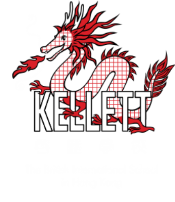
This year Kellett School, the British International School in Hong Kong, has celebrated 10 years on its Kowloon Bay campus, home to one of our two Prep Schools and our Senior School. The campus added to our Pok Fu Lam Prep School, which for decades had been the primary school of choice for British expats relocating to Hong Kong, providing a pathway through to Senior and on to University.
The Senior School, in its short decade of existence, has made remarkable progress, achieving some of the best results of British International Schools globally, helping more than 500 students get into their chosen university in the UK and elsewhere, being awarded Outstanding by BSO (2023) and becoming a member of HMC. Behind the accolades are countless stories of students reaching their true potential.
Assessing whether students achieve their potential is measured, using data gathered across the students’ lifecycle at school, and includes baseline assessments, global data points, teacher predictions and examinations to see what value is added. Just as the world of business utilises data to seek marginal gains, so too does Kellett. We treat data as a valuable guiding hand, that allows us to understand and support our students to achieve their best and ensure that areas of unrealised potential are not missed. And as a not for profit, assessing value add helps us identify areas where we might choose to invest. And at Kellett the data picture we leverage on students goes beyond academics. We capture a wealth of wellbeing data, including via regular surveys from Y5 upwards. Staff, academic and pastoral get a rounded data picture of our students, meaning we can put in place interventions in both as needed. When academics are going well this supports wellbeing, and vice versa, so keeping a data-eye on both is vital.
The advantages of being a through-school are numerous and well-documented. Handover and transition, from year-to-year, and key stage-to-key stage means rich, detailed and valuable information is passed on to their next teacher and tutor. Staff get to know the students (and their families) inside-out. Prep School subject leaders meet regularly with Senior counterparts to discuss curriculum pathways and best practices, so that they align and complement each other with clear progression. A greater number of staff can share their expertise through whole-school professional development. A detailed transition programme can be put in place for our Prep students, with numerous opportunities to visit the Senior School and meet the teachers, but also to see Senior productions and events, which both prepare and excite them for the journey ahead.
The progress made in capturing our data in recent years has further amplified the advantages of being a through-school. The depth of data about our students from age 4 to 18 is invaluable in supporting them on their learning journey. Teachers may come and go, but the data captured remains and helps inform and guide staff on the next steps for our cohorts of students.
Our data confirms our advantage as a through-school. Students who start with us in the Early Years and KS1 [Reception to Year 2] make remarkable progress. At this age, children are developing many different skill sets, and having a low student-teacher ratio and the capacity to run multiple interventions for support and challenge within the Prep timetable, and with experienced Teaching Assistants, allows them to accelerate academically. And our data backs up the assertion that the greater their Prep School experience, the higher those students achieve at GCSE.
Our students typically perform exceptionally well at iGCSE. We use these results as our baseline for predicting A-Level grades, given they are the best predictor of how a student will go on and perform. As such, a significant proportion of our students are typically forecast to achieve the highest grades, from which it is difficult to add significant further value. Therefore whilst ‘value add’ in Sixth Form ensures students’ grades remain as high as possible with up to an additional 0.5 of a grade, value-add takes additional forms, such as preparing students for university and the workplace, developing well-rounded individuals that stand out amongst UCAS applications or an inbox full of CVs. Fortunately, the A-Level curriculum allows space for students to undertake a mini-MBA, an EPQ (Extended Project Qualification -akin to a mini-thesis or project on a subject a student is passionate about), participating in the expressive arts or sports, and a huge range of other ECA activities.

.png&command_2=resize&height_2=85)
